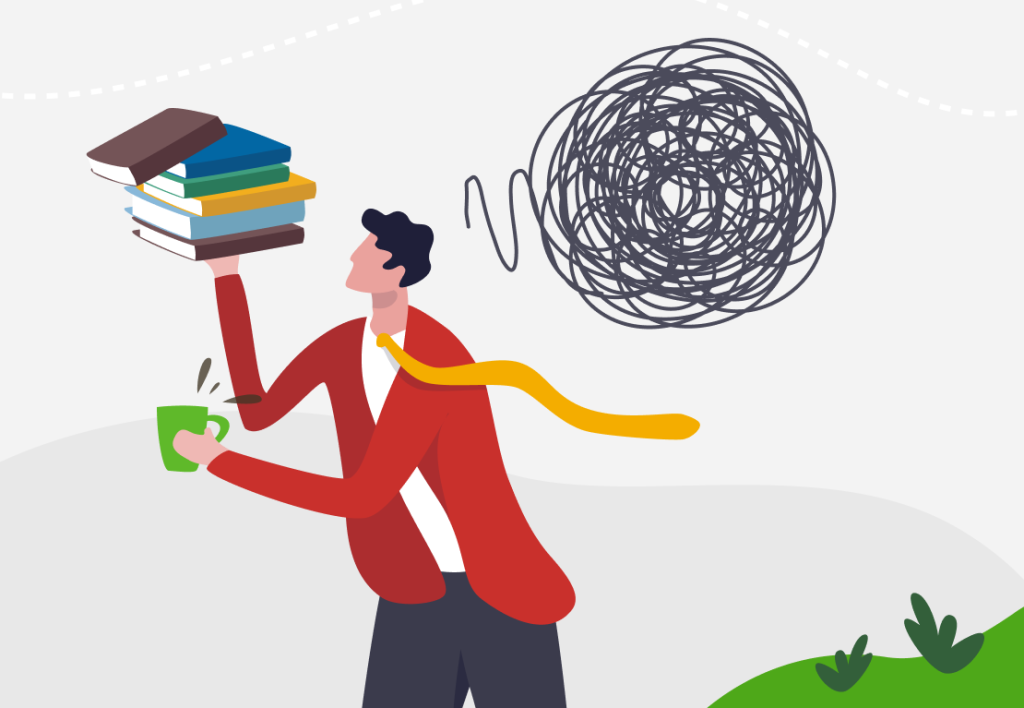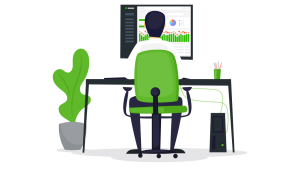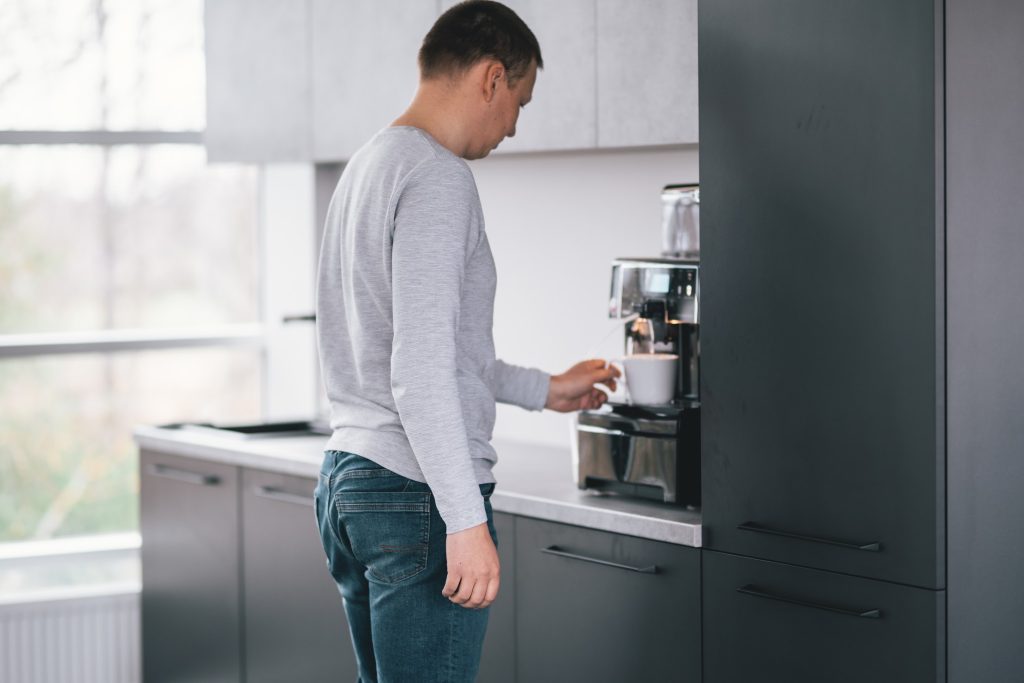How to have a better day at work? 5 mistakes to avoid

It’s a regular workday. You show up, sit down at your desk, and just do the work you’re supposed to do for eight hours. Right? Wrong! Today, we’ll talk about how to have a better day at work.
Humans are not machines and make mistakes all the time, sometimes without even fully realizing it. You might think that you have a good routine and systems in place to tackle a typical workday, but what if we told you that you might unknowingly be ruining it, and there are simple but effective changes that you can make to have a better day at work?
Here are the 5 most common mistakes that you might be making that are ruining your workday:
- Biting off more than you can chew
- Starting your day with emails
- Starting your day with coffee
- Not having a task management system
- Not taking enough breaks
Now, let’s see what are the solutions and how to make your workday more enjoyable, starting today!
Want to get the most out of your time?
Try DeskTime for free!
Try free for 14 days · No credit card required.
By signing up, you agree to our terms and privacy policy.

1. Biting off more than you can chew

Some people subscribe to the belief that the only way to climb the career ladder is to be a forever yes-man and always be willing to take extra work to appear more committed and hardworking. But that’s not exactly the case.
Whether or not you are prone to constantly agreeing to do additional work due to the desire to get recognition from the management or simply due to planning fallacy (underestimating how much time it will take to complete a task), it will not be a long-term solution and will ultimately lead to burnout.
Having too much on your plate will bite into your productive hours and overwhelm you with too many tasks. Multitasking has repeatedly been proven to be a destructive way to get work done, and it will only take away from successfully getting work done.
What to do: First off, collect data. In order to better understand your work capacity during the day, track how much time it takes for you to complete a task or a project. To take it a step further and understand what is eating up your time overall, DeskTime will be a great tool to help you with that.

Be smart about your time!
Use DeskTime for time management, and always stay on top of your efficiency ratings.
This will not only help you better estimate for future projects but also set firm boundaries and advocate for yourself. Sadly, having a boundary predator boss can be challenging to deal with, so knowing your limits and having clear boundaries will be an easy way to look out for your well-being.
2. Starting your day with emails

Energy management is crucial when it comes to monitoring your physical energy at work and dedicating certain hours of the day to certain tasks. According to our circadian rhythm, we reach peak levels of energy within the first few hours of waking up, so it is important to use that time effectively.
Unfortunately, most working people start their workday by reading and replying to emails, and according to a Sleep Advisor survey, 1 in 3 millennials check their email immediately after waking up.
Not only does checking your email first thing in the morning increases anxiety, but it also makes you approach work in a reactive rather than proactive way. This ultimately leads to prioritizing other people’s requests and problems over your own and wasting that precious energy window.
What to do: The first few hours of the day are crucial to maximizing productivity, so instead of starting your workday with emails, focus on deep work and prioritize more challenging tasks and decisions, making the most of your brain’s capacity.
It is acceptable to reply to an email within 24 hours, so unless you know you have something urgent awaiting your reply, your inbox can wait until the afternoon. To minimize distractions during deep work hours, try not to have the email tab open on your browser and mute notifications from other apps, if possible.
3. Starting your day with coffee

It is not a secret that most people feel they cannot properly start their day without having a cup of coffee, but is it really the best for us in terms of having a productive workday?
The circadian rhythm strikes again — the release of cortisol, a hormone that responds to natural sunlight and is related to alertness, peaks around 8 and 9 in the morning, and drinking coffee during this time reduces the effectiveness of caffeine and gradually builds tolerance to it, so you end up needing to consume more and more for the same results. Plus, the effects of caffeine don’t last forever, so you’ll be more likely to crash and feel sluggish in the afternoon and reach for another pick-me-up cup.
What to do: There are a few options you can explore. First, try opting for a morning cup of black tea instead of coffee. Black tea contains L-theanine, which is an amino acid that reduces stress and improves cognition and concentration.
If black tea does not sound as appealing and you absolutely need your coffee, try to wait at least 1-2 hours to have it after waking up. This way, your body will have a chance to naturally regulate its energy levels and be ready for a more effective caffeine boost.
4. Not having a task management system

Have you ever been impressed by that waiter who does not carry a notepad and just remembers every order for a party of nine? You don’t have to be that person at work.
Having a task management system is like having a map or a GPS system that allows you to get to the destination using the fastest route. Yes, you can survive without it, but having it makes your life a lot easier.
What to do: Have all of your tasks in the same place, which will ensure no task is left behind. As soon as something comes up, write it down. Then, organize them according to priority to ensure the most pressing tasks have the attention they need. Use those first of the day we already talked about to complete the high-priority tasks and leave the less urgent ones for the afternoon.
Another tip that might help you is to take about 15 minutes at the end of the workday to sit down and plan the next one. Whether it be a full schedule or a simple to-do list, it will help you relax at night and know that you already have a game plan to tackle the workday ahead.
5. Not taking enough breaks

We might sound like a broken record at this point, but one of the most common mistakes that might be ruining your workday is not taking enough breaks. It is impossible to be productive all eight (or however many) work hours every day, and our brains and bodies need frequent breaks to be productive.
What to do: We’ve talked at length about how and why the 52/17 method works for reaching your utmost productiveness potential and how it has changed alongside a pandemic, and there are a few key takeaways.
First, work breaks into your schedule and actually track the time you spend working and taking breaks. Second, a break will only be effective if you fully unplug and limit other stimulation. Unfortunately, with the rise of remote work, people use breaks to complete other tasks around the house, which doesn’t allow for effective rest. Third, if you are able to, try to move your body once every hour or so to relieve stress, get an energy boost, and improve concentration.
How to make your workday better?
Nobody’s perfect, so don’t feel like you have to incorporate these changes all at once — balance is key to success. Take time to lay out your workday and really think about where it can be improved. That’s the only way you can discover your unique formula to having a better day at work.
Whether it be monitoring your workload, letting emails and coffee wait until later in the day, implementing a reliable task management system, or prioritizing taking enough breaks, you are in charge of making the most out of your workday.
Did you find this article useful? Give it a clap!
Psst! You can clap more than once if you really loved it 🙂